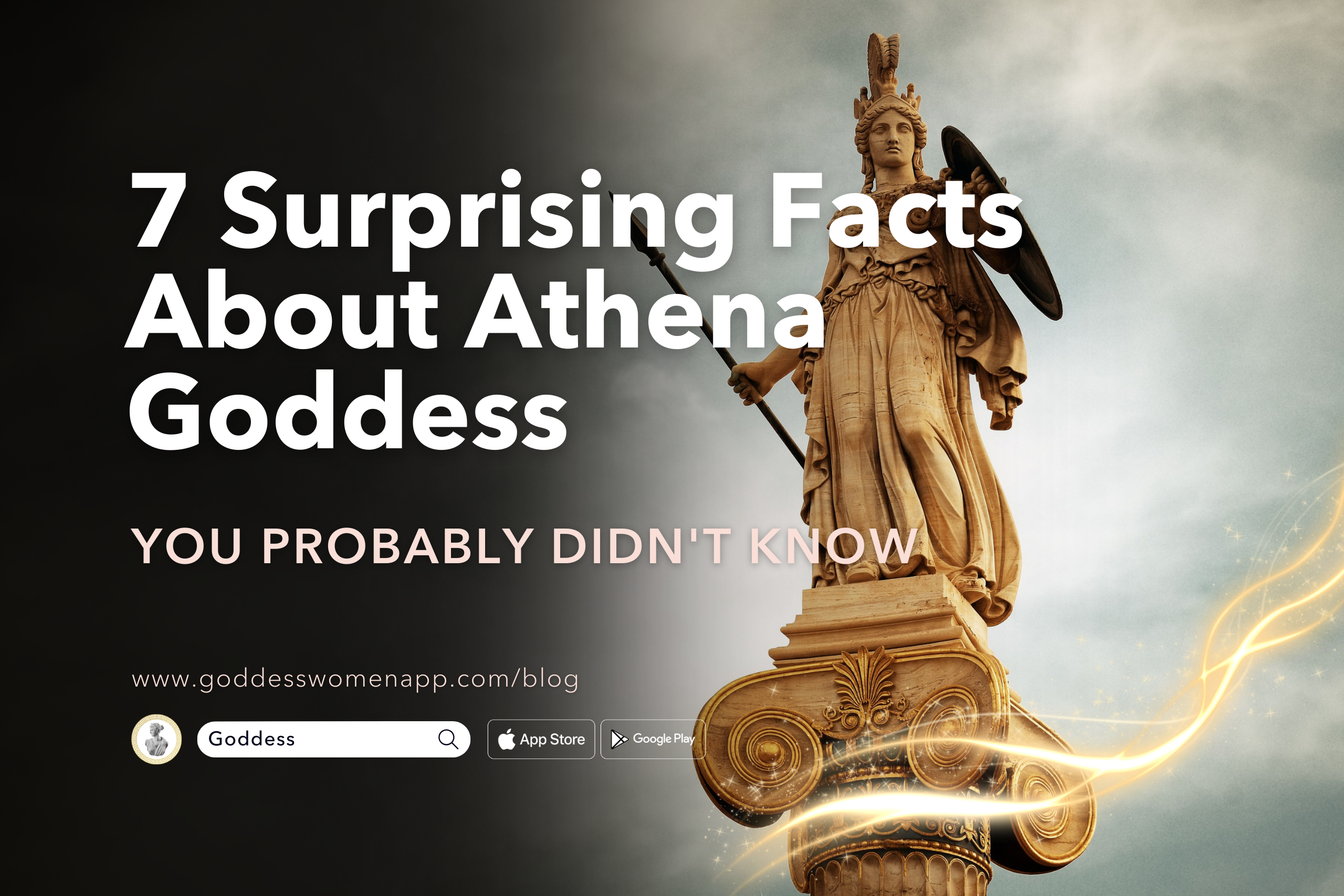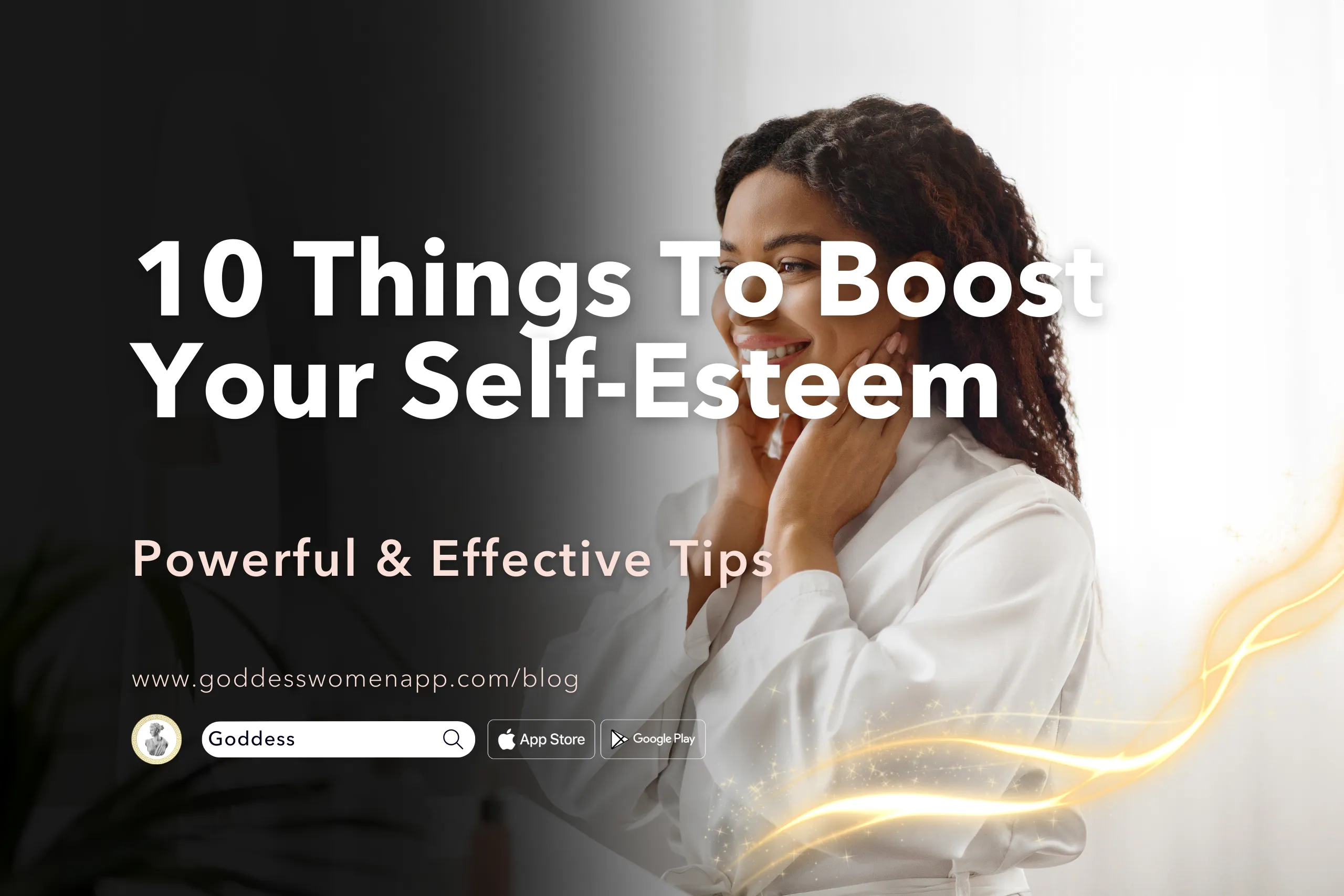Table of Contents
Introduction to Goddess Athena
Welcome to a deeper dive into one of the most revered figures in Greek mythology, Athena Goddess, the goddess of wisdom and warfare. Known by many names, including Pallas Athena and Athena Parthenos, she stands out in the ancient pantheon not only for her strategic mind but also for her profound impact on Greek heroes and cities. Athena is a symbol of courage, civilization, and acumen, weaving her influence through the stories that form the backbone of Greek culture. This blog unveils surprising facts about the Athena goddess, illuminating her multifaceted roles from the heights of Mount Olympus to the sacred Athenian Acropolis.
Begin Your Divine Journey: Take the Goddess Archetype Quiz Today

Fact 1: The Miraculous Birth of Pallas Athena
Among the most iconic tales in the rich tapestry of Greek mythology is the birth of Athena, which encapsulates her unique origins and divine stature. Unlike other deities, Athena’s entrance into the pantheon was as dramatic as it was sudden. The story begins with Zeus swallowing Metis, the goddess of wisdom, while she was pregnant with Athena. This act was motivated by a prophecy foretelling that his child would be extraordinarily powerful.
Zeus, the chief god, hoped to avoid a potential overthrow by incorporating Metis into himself. However, this only set the stage for a spectacular occurrence. Over time, Zeus developed an enormous headache, a divine discomfort so severe that it could only be alleviated by drastic means. Hephaestus, or in some versions Prometheus, approached Zeus and, with a mighty strike to Zeus’s head with an axe, provided relief. From this incredible act, Athena leaped forth from Zeus’s cranium, fully grown and clad in armor, a warrior born.
This remarkable birth narrative emphasizes Athena’s roles as both a war goddess and a patron goddess, showcasing her strategic prowess and her sudden, fully-formed wisdom. It also highlights her identity as Athena Polias, protector of cities, and Athena Nike, bringer of victory. This dual aspect of nurturing protector and formidable warrior underscores her importance in ancient Greece—not merely as a deity of battle, like Ares, who revels in the chaos of war, but as a strategic and intellectual force who guides her favored among men and gods alike.
The miraculous birth of Athena is not just a tale of divine emergence but a reflection of the ancient Greeks’ views on wisdom and power, where intellect and military prowess combine to form a potent force for guidance and protection. This story also sets Athena apart as a deity who was both deeply respected and uniquely connected among the gods, embodying the highest ideals of Greek civilization and influence.

Fact 2: Athena Goddess and the Olive Tree
One of the most beloved legends of Athena, illustrating her role as the patron goddess of Athens, involves the sacred olive tree, a symbol deeply entrenched in the fabric of Ancient Greece. This tale originates from a contest between Athena and Poseidon, the sea god, who were both eager to claim patronage over the newly founded city on the Athenian Acropolis.
The contest was to gift the city the most useful and impressive gift. Poseidon struck the ground with his trident, from which sprang a saltwater spring, symbolizing naval power. However, Athena planted the first olive tree on the rocky ground of the Acropolis. This tree was seen as a more valuable offering; it provided wood, oil, and food, all essential resources for the Athenians. The olive tree also symbolized peace and prosperity, reflecting Athena’s intellectual and civilized side beyond her martial attributes. It was this gift that won Athena the patronage of Athens, thereafter named in her honor. This story not only highlights her wisdom but also her strategic thinking in providing a sustainable resource, further cementing her status as the goddess of wisdom.

Fact 3: Athena’s Dual Role as War and Wisdom Goddess in Greek Mythology
Athena is renowned not just for her wisdom but also for her role as a formidable warrior goddess. Her dual capabilities are prominently displayed in numerous stories of Greek mythology, where she is often depicted guiding and protecting Greek heroes such as Hercules and Odysseus. Unlike Ares, whose approach to war was characterized by chaotic violence and mere blood lust, Athena’s methods were strategic and calculated, emphasizing the importance of intelligence and foresight in conflict.
Her martial prowess was revered across Greek cities; however, she was always seen as a protector rather than an aggressor—a war goddess who embodies military superiority through wisdom rather than through sheer force. Her involvement in the Trojan War, as depicted in Homer’s Iliad, showcases her tactical skill and her role in influencing the battle in favor of the Greeks through guile and strategic interventions.
Moreover, Athena was not just a deity of physical warfare; she was also a champion of the mind. Often referred to as Athena Parthenos, the virgin goddess, she represented the purity of intellect and spirit. Her divine form was not only that of a beautiful woman but also that of a powerful influence on the intellectual and civilized side of Greek society, advocating for justice, skill, and knowledge.
Through these dual aspects, Athena bridged the world of heavenly influence and mortal affairs, guiding the evolution of Greek culture and embodying the highest ideals of bravery and wisdom. Her legacy as a goddess who could wield the olive branch as skillfully as the spear makes her a lasting symbol of the complex interplay between peace and power, intellect and force, in the rich tapestry of mythology and history.

Fact 4: The Significance of Athena’s Virginity
In the pantheon of Greek gods and goddesses, the aspect of virginity held a profound significance, particularly for Athena, who was known as Athena Parthenos. This title, meaning “Athena the Virgin,” was not merely a reflection of her physical state but a symbol of her independence and autonomous authority as a deity. Her virginity allowed Athena to remain aloof from the romantic entanglements and familial disputes that often characterized the narratives of other Olympian gods, positioning her as a figure of unbiased judgment and moral rectitude.
This status also represented her sexual modesty, which was highly valued in ancient societies and seen as a source of power and respect. The Parthenon, the magnificent temple on the Athenian Acropolis, is dedicated to her virgin aspect and stands as a testament to her importance and reverence in Ancient Greece. Her virginity underscores her role as a patron goddess and protector, who could interact with heroes and mortals without any sexual tension or conflict, guiding them with wisdom and fairness.
Fact 5: Inventor of Civilizational Tools
Beyond her martial and protective roles, Athena was also revered as an innovator and a patron of arts and crafts. According to Greek mythology, Athena invented several tools and techniques that significantly contributed to the development of civilization. Among her inventions were the bridle, which allowed humans to tame horses for riding and plowing, thereby transforming agricultural practices and transportation.
Athena is also credited with the creation of the flute and the pot, which not only had practical uses but also cultural significance in rituals and daily life in Greek cities. Perhaps her most notable invention, however, was the olive tree, as previously discussed. This gift to the Athenians provided them with oil, wood, and food, staples that supported the growth and sustainability of Ancient Greece.
These contributions highlight Athena’s profound impact not only in terms of military prowess and strategic guidance but also in her role in fostering the intellectual and civilized aspects of society. Her ingenuity is a cornerstone of her identity as the goddess of wisdom, showing that her wisdom was not only theoretical or abstract but also immensely practical and beneficial to the development of the societies that worshipped her. This blend of divine intellect and practical invention makes Athena a unique figure among the ancient deities, revered not just for her strength in battle but also for her role in advancing early human ingenuity and civilization.

Fact 6: Athena’s Roman Adaptation as Minerva
As the worship of Greek deities spread beyond Greece, many gods and goddesses were adapted into Roman mythology, including Athena, who became known as Minerva. Despite the change in name and some aspects of her character, Minerva retained the core attributes of Athena: wisdom, warfare, and craftsmanship. This transition highlights the adaptability and enduring appeal of Athena’s persona, resonating with a new audience while maintaining her fundamental characteristics.
Minerva in Roman culture was considered not just a war goddess but also a protector of arts and the patron of craftsmen, similar to her Greek counterpart. She was a member of the Capitoline Triad along with Jupiter and Juno, which underscores her elevated status among Roman gods. This adaptation from Athena to Minerva demonstrates the cultural exchange between Greeks and Romans and shows the shared human desire to personify and venerate concepts such as wisdom and strategic warfare.

Fact 7: Athena’s Relationships with Other Deities
Athena’s relationships with other deities in Greek mythology are complex and multifaceted, reflecting her important role on Mount Olympus. As the daughter of Zeus, she held a special place as one of his favorite children, born uniquely from his forehead, which marked her as a direct emanation of his wisdom and power. This unique birth bonded her closely with Zeus, often positioning her as his trusted advisor and enforcer, helping to implement his will among gods and mortals alike.
Her relationship with other deities such as Ares, the god of war, was often depicted as competitive. Where Ares represented the chaotic and brutal aspects of war, Athena symbolized the strategic and moral dimensions of military engagement. This contrast highlights her role not just as a warrior goddess but as a deity who promotes the intellectual and ethical aspects of conflict.
Athena also had notable interactions with Poseidon, with whom she competed for the patronage of Athens. Despite their rivalry, they were both major Olympian gods and shared roles as protectors of various city-states. Her rapport with Apollo, another god of wisdom and the arts, was generally harmonious, with both deities upholding the principles of knowledge and prophecy.

Conclusion
Throughout the annals of Greek mythology, the Athena goddess stands out as a paragon of wisdom and strength. From the legendary tales of her miraculous birth from Zeus’s head to her invaluable contributions to Ancient Greece, Athena has remained a beacon of intellectual prowess and military strategy. As both a warrior goddess and a patron goddess, her stories weave through the history of Athens and beyond, symbolizing the ideals of courage, justice, and intelligence.
Athena’s adaptations from Greek to Roman mythology as Minerva, the goddess of wisdom, highlight her lasting influence across different cultures and eras. Her divine form, revered as Athena Parthenos, and her strategic roles in mythological tales, such as aiding heroes and inventing crucial tools like the olive tree, underscore her multifaceted nature. This blend of divine warrior and protector, innovator, and guide makes Athena a figure of immense respect and eternal fascination.
As we reflect on Athena’s enduring legacy, it’s clear that her stories are not just relics of the past but continue to inspire and teach lessons about wisdom, resilience, and the importance of strategic thinking. Whether guiding Greek heroes on the battlefield or imparting moral and practical wisdom, Athena’s influence is timeless, proving her relevance in any age.
For those intrigued by Athena’s qualities and curious about how her attributes might resonate today, why not explore your own connection to the divine feminine? Visit the Goddess app and take the archetype quiz to discover which goddess energy you possess. Embrace the wisdom of Athena or the strength of other deities, and find out how these ancient powers can inspire your modern life. Take the quiz now!





